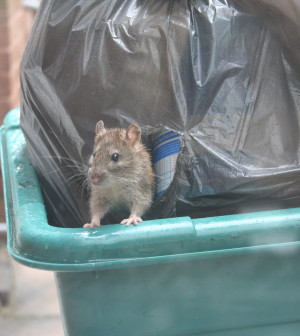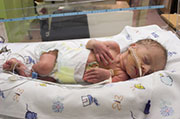- 8 Ways to Increase Dopamine Naturally
- 7 Best Breads for Maintaining Stable Blood Sugar
- Gelatin vs. Collagen: Which is Best for Skin, Nails, and Joints?
- The Long-Term Effects of Daily Turmeric Supplements on Liver Health
- Could Your Grocery Store Meat Be Causing Recurring UTIs?
- Are You Making This Expensive Thermostat Error This Winter?
- Recognizing the Signs of Hypothyroidism
- 10 Strategies to Overcome Insomnia
- Could Artificial Sweeteners Be Aging the Brain Faster?
- Techniques for Soothing Your Nervous System
Gut Bacteria in Preemies Altered by Hospital Stay, Study Finds


Gut bacteria in premature infants don’t come from their mothers, but from microbes in the neonatal intensive-care unit (NICU), a new study finds.
Babies typically get their gut bacteria from their mothers during childbirth. Premature infants, however, receive antibiotics during their first week of life to prevent infections, and these antibiotics eliminate many of the microbes the infants receive from their mothers.
As a result, microbes from the NICU colonize the digestive tracts of premature infants, the University of California, Berkeley, researchers found.
The researchers swabbed the most-touched surfaces in an NICU and collected fecal samples from two premature infants in the unit. The surfaces checked for microbes included the sink; feeding and breathing tubes; the hands of health workers and parents; incubator access knobs; and keyboards, cell phones and other electronic equipment at the nurses’ station.
The researchers found that the gut bacteria in the two infants were similar to those found on the surfaces in the intensive-care unit. The most abundant types of gut bacteria in the infants were similar to those found on feeding and breathing tubes.
The study was published recently in the journal Microbiome.
“The most common species found in our study — Enterococcus faecalis, Staphylococcus epidermidis, Escherichia coli and Bacteroides fragilis — all have been associated with disease in preterm infants, but can also be commonly isolated from healthy infants and adults,” study author Brandon Brooks said in a journal news release.
“The strains found here are largely opportunistic, lacking many of the really nasty genes found in ‘outbreak’ versions of their respective strains,” Brooks said. “The bacteria would need to be further tested to fully understand [any potential threat].”
Both infants in the study were healthy when they left the hospital.
More information
The U.S. National Institutes of Health has more about human microbes.
Source: HealthDay
Copyright © 2026 HealthDay. All rights reserved.










